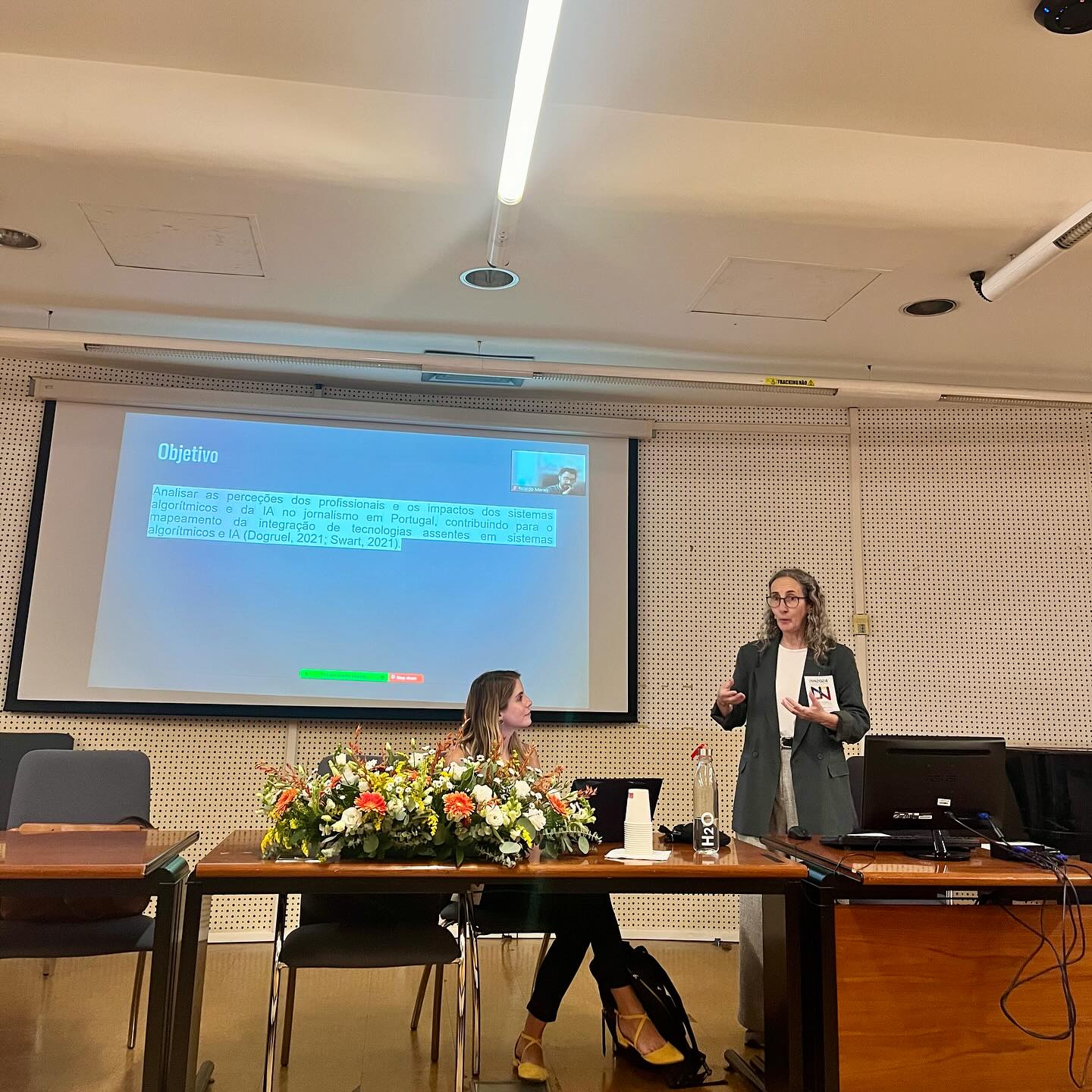A Inteligência Artificial, IA, parece surgir como um facilitador para os jornalistas, nomeadamente, no que se refere ao trabalho criativo e ao desmontar da desinformação, mas, por outro lado, existem dúvidas das redações acerca de como lidar com as mudanças disruptivas colocadas pela IA, explicou Ana Pinto Martinho, investigadora do ISCTE, que integra o projeto Iberifier, na II International Conference on Media Innovation, que se realizou dias 11 e 12 de setembro, na Faculdade de Ciências Sociais e Humanas, em Lisboa.
Ana Pinto Martinho explicou que 71% dos gestores apoiam planos de formação para implementar a IA no trabalho jornalístico, mas que também 43% têm reservas quanto à capacidade para as redações jornalísticas de o fazerem.
A também coordenadora da pós graduação em Jornalismo do ISCTE concluiu dizendo que a indústria jornalística está já a incorporar a IA com efeitos ainda difíceis de avaliar e que as decisões tomadas pelos meios de comunicação social sobre esta matéria decidirão o futuro do sector.
A conclusão baseia-se num estudo produzido pelo Iberifier, que partiu da consulta alargada de especialistas: investigadores e académicos e de um inquérito, intitulado “Análise das Tendências e Inovações no ecossistema dos média de Espanha em Portugal: 2025/2030”. https://iberifier.eu/2024/01/10/iberifier-reports-analysis-of-trends-and-innovations-in-the-media-ecosystem-in-spain-and-portugal-2025-2030/
A abordagem metodológica deste estudo incluiu a audição de 71 especialistas em 16 áreas temáticas. Após essa recolha, foi proposto um questionário online fechado a 101 editores que validaram ou não alguns dos pontos de vista.

